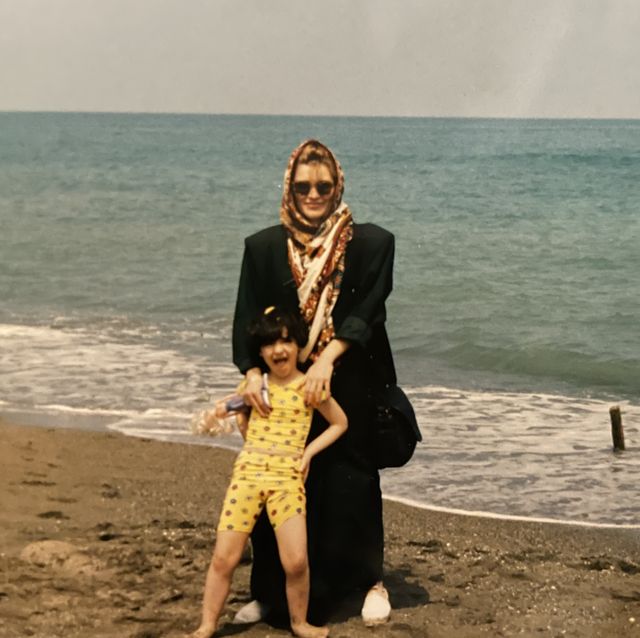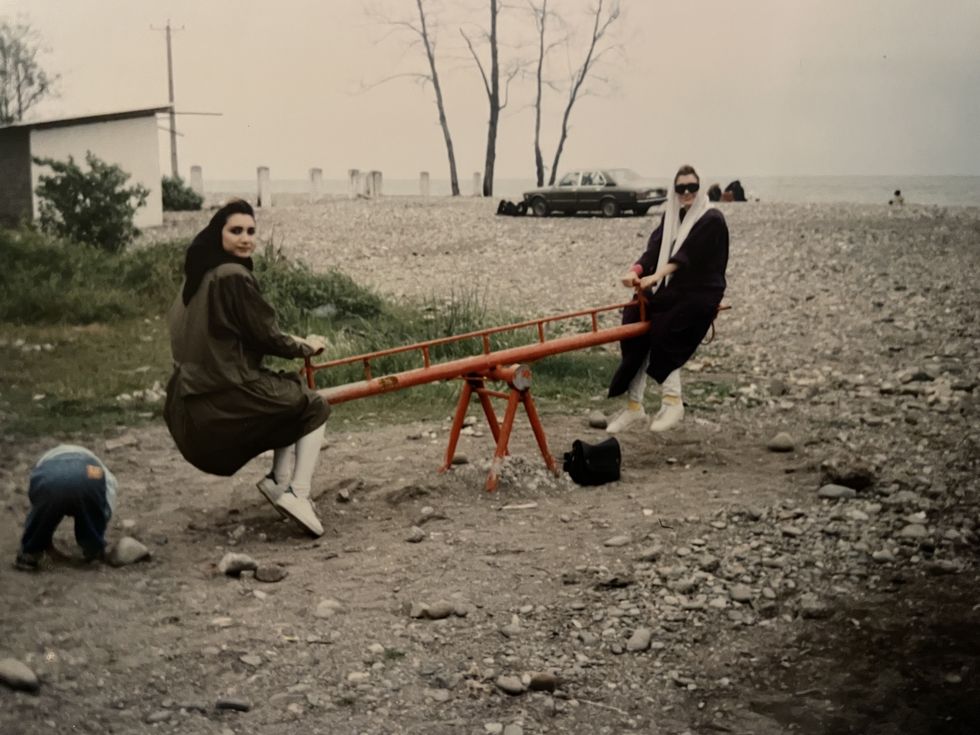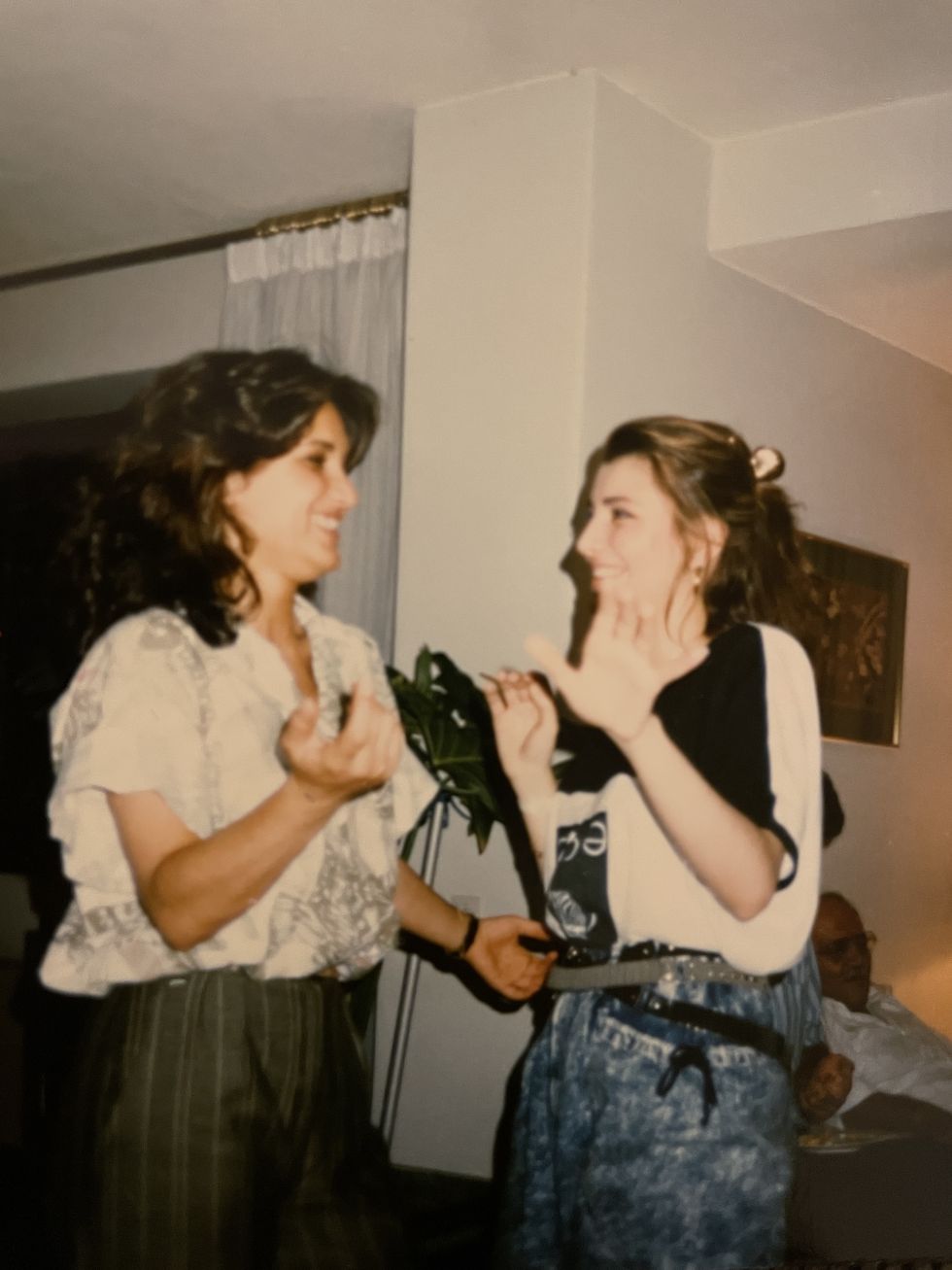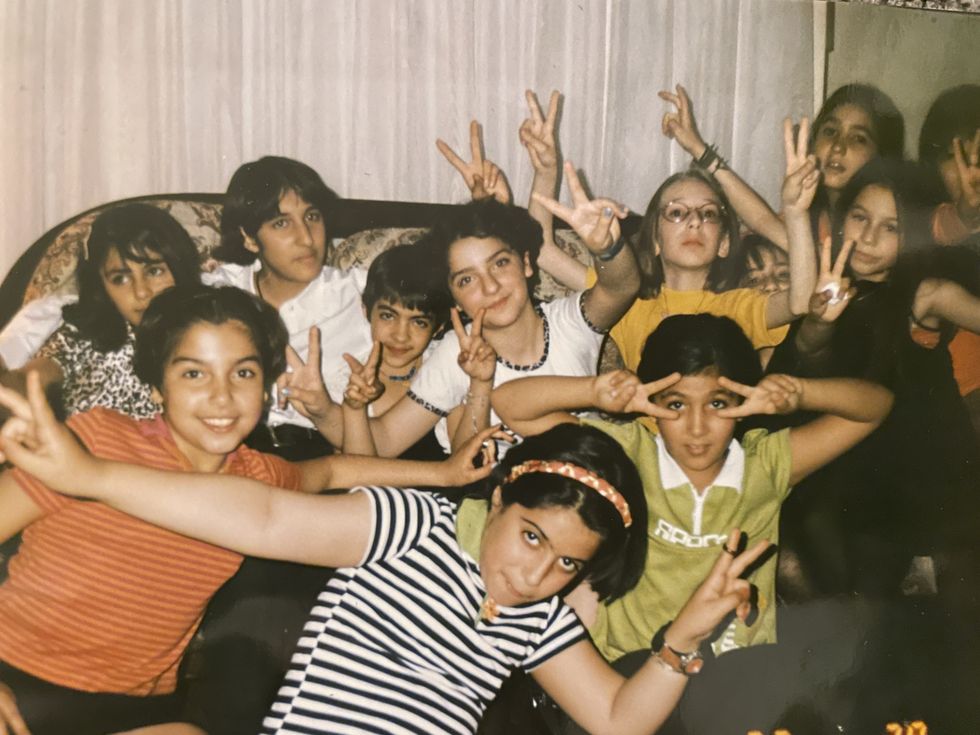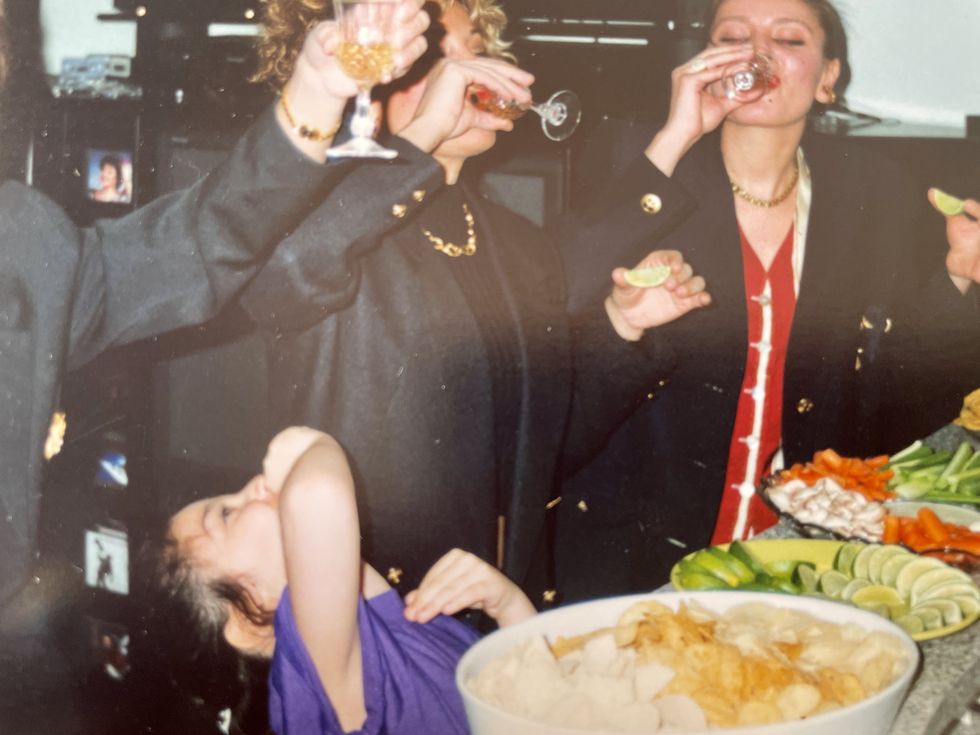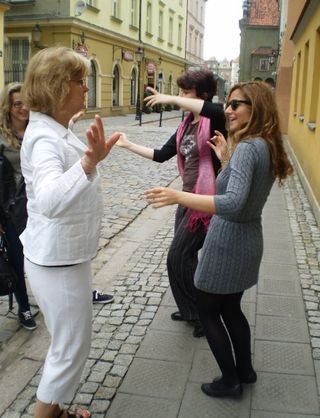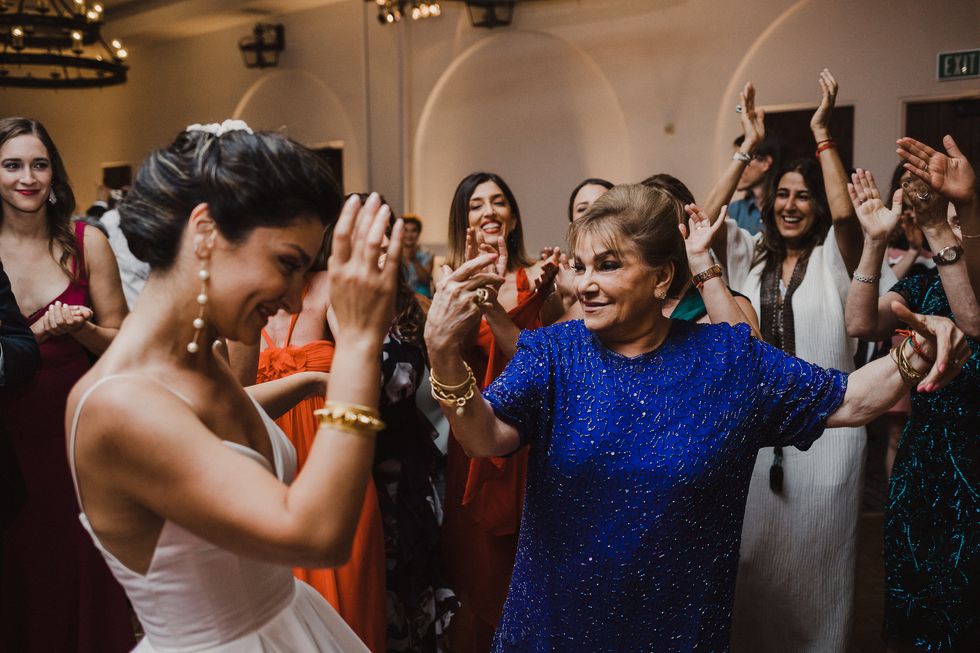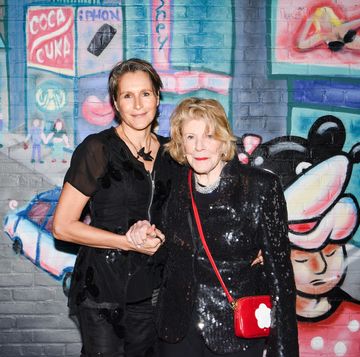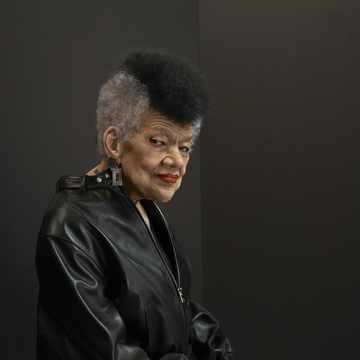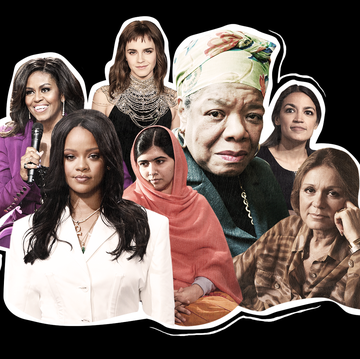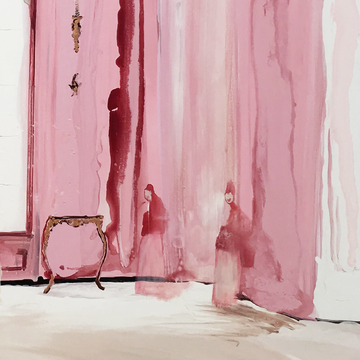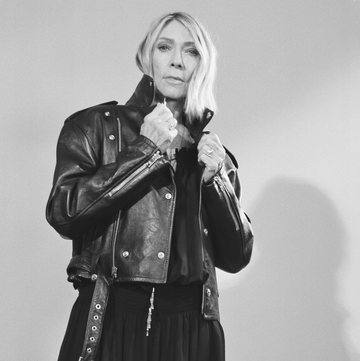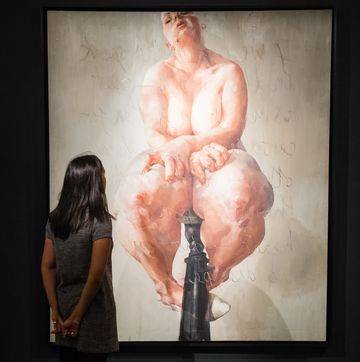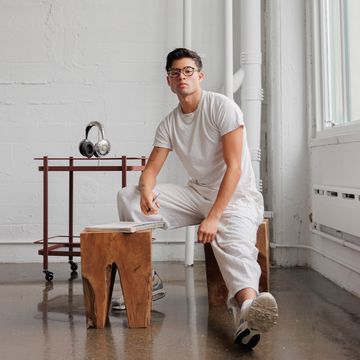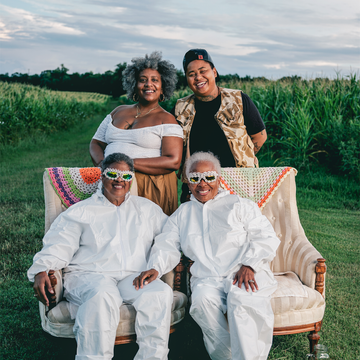In September 1994, on my first day of school in Toronto, my first-grade teacher, Mrs. Avruskin, introduced me to the class. “This is Tara. She comes from Iran, a very scary country where evil men kill people daily. Tara is lucky to be here in Canada, where we believe in peace,” she said. My mother had fled Iran with me just weeks before, not wanting to raise a daughter under the oppressive Islamic Republic, and I trembled with fear for the family we had left behind. I cried for the rest of the day, and after school, I begged my mom to bring all my loved ones to Canada. This was the first time I had faced a foreigner’s perspective of Iran, and even though she wasn’t wrong about the evil men, her depiction of darkness was not how I had experienced Iran. My childhood had been carefully curated to be joyful.
Today, Iran is more than four months into sustained anti-government protests—the early stages of a revolution I have dreamt of my entire life. And as an Iranian-born immigrant who spent most of my summers growing up in Iran, I see now how joy has always been an act of rebellion under the Islamic Republic, an anti-Western religious theocracy that enforces strict Islamic codes of dress and behavior. These laws are particularly discriminatory against women, who have been robbed of simple joys such as showing their hair, dressing how they please, holding hands with a man they are not married or related to, traveling without their father’s or husband’s permission, and dancing or singing in public—among a myriad of other laws that have made Iranian women second-class citizens in their own country.
The reign of the authoritarian regime, which has oppressed the Iranian people since coming into power more than 40 years ago, is waning, as fear has given way to sheer bravery led by those who have been victimized the most: women. This burgeoning revolution to reclaim our joyous culture began with women burning their mandatory hijabs—the most visible aspect of their oppression—dancing and singing publicly in protest for their freedom. In the past months, the Iranian people have faced the darkest days. The statistics are harrowing, and I am reluctant to state them for fear of reducing the pain of an entire people to numbers. Protesters are either killed or detained, only to face execution—men, women, and even children alike.
A family member likened living in Iran right now to being in a prison that is on fire. After speaking with him, I hung up the phone, heart heavy, and saw that he had sent me a video of a little girl dancing to my favorite Persian song. I imagined him smiling and singing along, the exhale we both needed.
My childhood in Tehran pre-emigration was filled with family and friends, trips to the Caspian Sea, and entire days spent at the pool. I always knew I wanted to be an actor and starred in my kindergarten plays, singing, dancing, and performing regularly. It should be noted here that I am from Northern Tehran, an affluent neighborhood, and not all Iranian children had the same privileges as I did. But nothing about my childhood in private was legal under the rule of the Islamic Republic.
I watched American movies my family would buy from the black market and prerevolution videos of the legendary Iranian singer Googoosh. I fell asleep to the sounds of my grandmother’s friends laughing loudly in the kitchen almost every night. They would take turns reading me storybooks when I refused to sleep, and I distinctly remember the smell of Marlboro Lights, Amarige by Givenchy, and every so often whisky as they tucked me in. Often, the nightly gatherings would turn into dance parties. My mom was a beautiful dancer; everyone would chant her name and beg her to get up and dance. I would peep through the door and mimic her every move.
Life was joyful in the privacy of our home. The public sphere was a different world. Before we emigrated, there were no monsters under my bed, because they were patrolling the streets. They weren’t imaginary. They were shockingly real. And no one could protect me from them, because they were the government; they were supposed to protect me. I felt my mom’s body tense up every time we saw the Komiteh (the name for the law enforcement agency that enforced the Islamic Republic’s morality laws at the time). She pulled down her hijab and held her breath until they were out of sight. A far cry from her dance moves the night before.
Children might not be able to fully understand the effects of living under an authoritarian regime. But I certainly understood that public life was living by their rules or being detained, beaten, and even killed. I also knew that our private life was the secret world we created in our homes, filled with everything they banned, from the movies and music to the dancing, females singing, and the smell of whisky on my auntie’s breath.
The stark tension between private and public life in Iran, between expressing the innate joy of being Iranian and the oppression of an authoritarian regime, was too great for many to handle. After the revolution in 1979, Iranian women went from wearing miniskirts to long robes and hijabs overnight. They went from boogying at nightclubs to being banned from any physical expression of emotion—including dancing and singing.
Joy is a part of our culture, from Rumi’s poetry about love, wine, and dance; to the rich colors of classic Iranian art; to our famous wedding feasts—our most extraordinary art is the art of celebration. We are known for our kindness, hospitality, love of storytelling, and vibrant language and history. The Islamic Republic’s greatest crime has been the attempted abolishment of this culture.
I returned to Iran almost every summer after we emigrated. With no family in Toronto, I longed for the outpouring of love I received as soon as I landed in Tehran. When I was younger, I looked forward to long summer days playing with my cousins at my aunt’s house. Between movie marathons, water fights, and learning magic tricks, we would play endless card games. One of my favorite memories is the entire family sitting in a giant circle with our grandparents playing blackjack (gambling and even playing cards are illegal).
As I grew older, I became familiar with Tehran’s clandestine nightlife in the form of house parties. We drank SKYY vodka, just like I did in Toronto (it was much harder to get on the black market in Tehran than it was in Toronto though) and listened to underground hip-hop made in Iran. I ended up at an underground club in Tehran in my early 20s, complete with a DJ stand, full bar, and some very raunchy dancing. The parties were co-ed, filled with banned music, banned alcohol, and women wearing whatever they wanted while dancing the night away. The illegality of it all was part of the excitement.
Government officials often raided these parties, and the consequences ranged from severe lashings to jail time to heavy fines. As a foreigner, I deeply feared these raids, but I followed the lead of my brave hosts—the rebellion was feeling fear and ignoring it. They were used to it. For my friends and family who had grown up in the oppressive school system, unable to show their hair, wax their eyebrows, and wear nail polish, with the heavy burden of religious ideology placed on their shoulders every single day, these parties were a necessity. Fear is the agent used by the regime to control the masses, and maintaining joy was a means of survival.
The first time I had ever even fathomed a free Iran was in 2009 during the Green Movement. The timing coincided with my graduation from university and my search for my artistic voice. I decided to speak out about the atrocities of the Islamic Republic and dedicate my career to educating the West about Iranian culture, with hopes that Iran would be recognized more for its joyous culture than the evil men Mrs. Avruskin had reduced the country to.
Being outspoken has meant sacrificing going back to my beloved Iran for fear of being detained, or worse, for criticizing the government. It has been 12 years.
On September 16, 2022, 22-year-old Zhina Mahsa Amini, a Kurdish Iranian tourist visiting Tehran, died after being beaten in government custody for wearing her hijab “improperly” by the so-called morality police (an evolution of the Komiteh that haunted my childhood). Her unjust murder was the painful straw that broke the camel’s back and started the woman-led uprisings sweeping the country. Protests have unsurprisingly been met with the regime’s brutality. Since then, my inbox has been flooded with images I wish I could unsee.
For every brutal image, there have also been those who have overwhelmed me with pride. Schoolgirls sing in their classrooms, and women dance to the music of street musicians in public parks and on the Metro, all without the mandatory hijab and all at the risk of death. Thousands and thousands of people march for their freedom every Friday, come hell or high water, in Zahedan. Gorgeous women are shot purposefully in the eye at close range, smiling and laughing, and claiming that losing an eye was worth it to fight for their freedom, to exercise their human right to protest.
I am floored by their bravery, unmatched courage, and resilience, and I stand with them across these oceans, sharing in their mourning and joys. I had a spark of hope in my heart for a free Iran, but today it is a full raging fire fueled by the bravery of the people. I keep imagining my hair blowing in the wind, bare shoulders sun-kissed, and sitting on a patio drinking a glass of wine with all the people I love most in this world. And dancing on the streets to the chorus of millions of female voices, celebrating the honor of being from that soil.
That day feels closer than ever, and nothing in this world has given me more joy.
